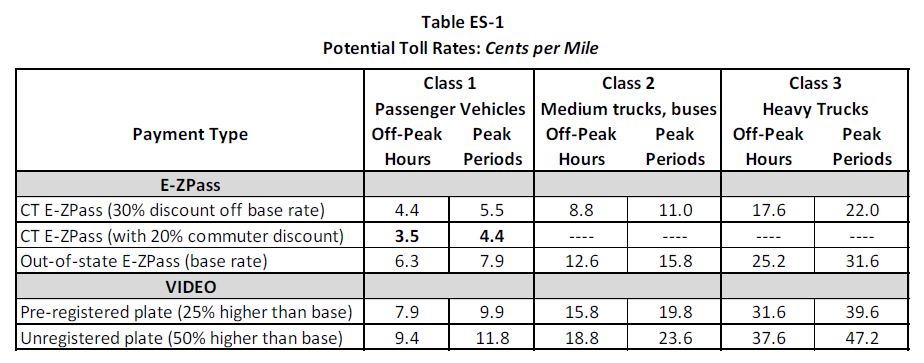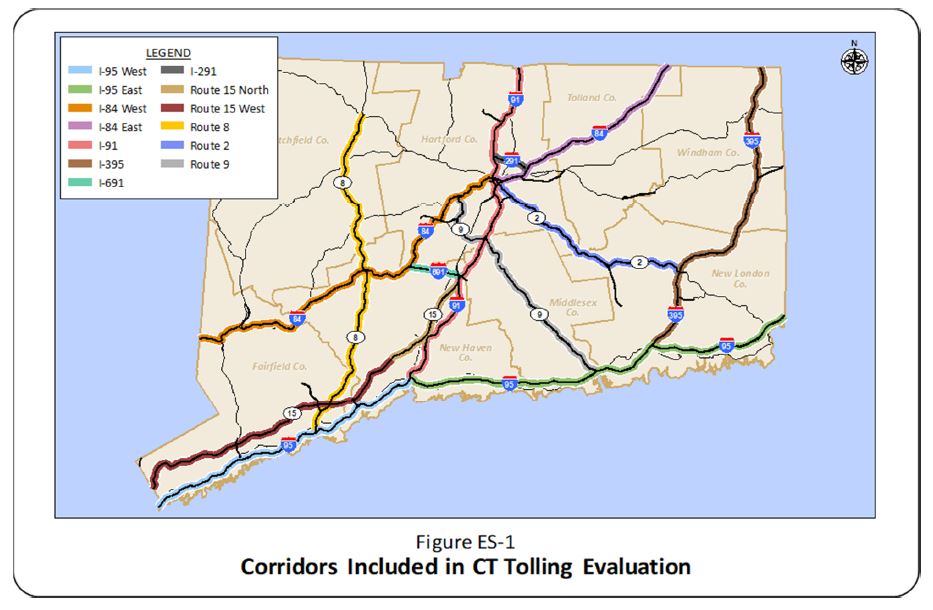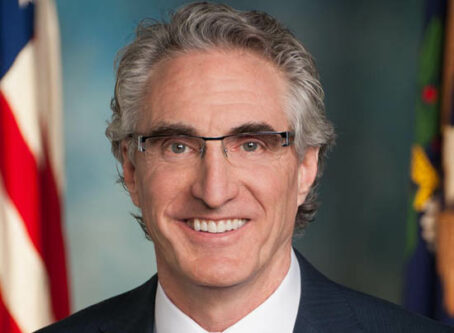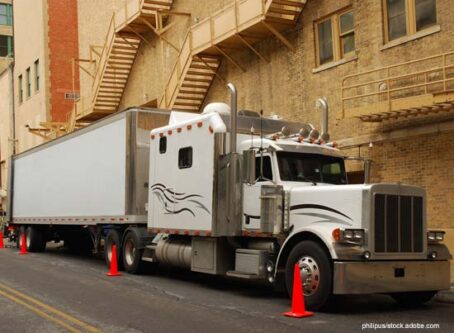Connecticut DOT issues report weighing tolls on all vehicles, not just trucks
Joining a growing list of states considering tolls, the Connecticut Department of Transportation has recently released a report that proposes all-electronic tolls on all vehicle types. That could raise nearly $1 billion each year. The DOT study is separate from the $10 million study commissioned by Gov. Dannel Malloy. Gov.-elect Ned Lamont campaigned on tolling only heavy vehicles.
If CTDOT’s report is adopted by lawmakers, trucks will be tolled four times the rate of passenger vehicles. Accounting for tolls on other vehicles, the CTDOT study calculates truck tolls at 17.6 cents per mile for Connecticut E-ZPass truckers and 25.2 cents for out-of-state E-ZPass users during off-peak hours. During peak hours, the rate increases to 22 cents per mile for Connecticut truckers and 31.6 cents for out-of-state E-ZPass truckers.
Truckers driving without an E-ZPass but having pre-registered plates will pay 31.6 cents per mile during off-peak hours. Their toll would be 39.6 cents per mile during peak periods. Heavy truck drivers with unregistered plates will pony up 37.6 cents per mile during off-peak hours and 47.2 cents during peak periods.
According to the report, based on a more inclusive toll on motorists the statewide tolling system presented would yield $950 million in annual net revenue in 2023 while including some of the lowest toll rates in the country.
Like most modern toll roads, Connecticut’s proposed tolls will all be electronic. They would use E-ZPass transponders and license plate cameras to collect tolls. Motorists using E-ZPass transponders issued and maintained by Connecticut will receive a 30 percent discount, which is considered a commuter discount rate. Out-of-state E-ZPass drivers will still receive the regular E-ZPass rate.
The following chart from CTDOT lays out toll rates being considered:

In its report, CTDOT claims the proposed toll rates are cheaper than nearby states in the region. According to the report, five-axle trucks pay an average toll rate of 29.3 cents per mile in neighboring states. Nationally, the average truck toll is 40.2 cents per mile, CTDOT claims.
CTDOT predicts that most of the revenue will be coming from Connecticut residents. It estimates 61.6 percent of passenger vehicles and 54.1 percent of truck toll revenue deriving from Connecticut-based drivers. That totals out to 59.4 percent of all tolls coming from within Connecticut. Of all the tolls collected, only 29 percent will come from Class 2 and 3 vehicles. The remaining 71 percent will be paid by passenger vehicle drivers.
If everything were to go as planned, CTDOT estimates that the average commuter would save about 18 hours per year at 2040 levels on Interstate 95 west, nine hours a year on Interstate 84 west and 10 hours per year over the entire tolled system.
Toll corridors proposed by CTDOT include all interstate highways and four other major expressways and parkways.

“The report we are releasing today is designed to inform a dialogue among our elected leaders and the citizens of Connecticut about the potential for instituting tolls in the state,” said CTDOT Commissioner James P. Redeker in a statement.
Earlier this year, Gov. Malloy called for a $10 million study on tolling in the state despite tolls having a history of failure within the state legislature. The move was met with immediate resistance. Sen. Joe Markley, R-Southington, told Land Line that the state has already conducted three toll studies since 2015.
“I am dead set against the tolls, and I am triple dead set against this ridiculous expenditure on a study that is unnecessary by a governor who is on his way out of office, when there’s an excellent chance we’re going to elect somebody who is going to have no interest in putting tolls on the highway at all,” Markley said.
Markley lost his bid for lieutenant governor during the midterm election.
Despite opposition, the State Bond Commission approved funding for the $10 million toll study. The study will assess possible electronic tolling on Interstates 95, 91 and 84. The toll study is separate from the recently release CTDOT report.
The CTDOT report looks into tolls on all motorists across the state. However, Gov.-elect Lamont has expressed interest in tolling only truckers. Lamont’s office could not be immediately reached.









